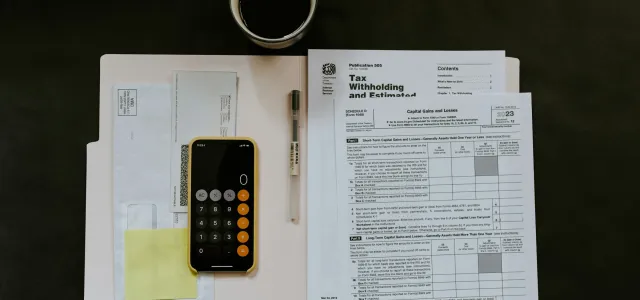We’re in the midst of an election year that, according to polling, very few Americans are excited about. Those seeking relief from political debate will need to wait to the end of 2025 and perhaps beyond thanks to the expected political battle over the expiration of the 2017 Tax Cut and Jobs Act (TCJA)1, which sunsets on December 31, 2025.
In this installment of financial planning basics articles, we discuss an aspect of setting up and managing your 401k account that a lot of people ignore or don’t put a lot of thought into – beneficiary designations.
It can be nerve-racking investing at all-time highs in the stock market. Should it be? The data says no.
I personally don’t believe in New Year resolutions – I think you can start doing something new, different, or better at any time that is right for you! Having said that, the beginning of the year is a great time to get a jump on managing your taxes. Taking advantage of new IRS rules and limit adjustments for 2024 starts now.
When a client is moving for one reason or another, a common question we get is whether they should rent or buy their next place. Earlier in my career, I would have started immediately analyzing the options to get to the financial answer, but now, I usually start talking through the non-financial factors to consider. Will you need to move further from work/family/friends to buy? Will your new neighborhood be equally walkable, and if not, is that important to you? How long do you plan to stay in the area?
Managing your debt may seem like a daunting task but the benefits of careful planning are invaluable. Debt is a major concern for many Americans and for good reason. If left unmanaged, many growing liabilities can eat up your current income, reduce your current and future savings, and even prevent you from buying a car or house. If you could create a plan to pay down your debt and untangle yourself from the institutions to which you are beholden, wouldn’t you? It is not always easy to “find” more cash to throw at liabilities.
A core tenant in financial planning is to focus on the controllable. For most of our clients, how much they contribute to their savings while working, and how much they plan to spend in retirement, have the greatest impact on the success of the plan. Investment returns matter as well, but to a much smaller degree than most people realize, and the returns are unpredictable in nature. This is of course in stark contrast to what is most often written about in financial publications – which is the next “hot” investment idea.
As the leaves begin to change and our thoughts shift towards the year-end holidays, it is also time to start thinking about upcoming changes in 2024 and some strategies to consider before the clock strikes midnight on December 31st.
Retirement plan contributions: 50+ catch-up retirement contributions
Nowadays, the 529 plan is ubiquitous among those families with children planning on or going to college. The advantages are obvious – tax-deferred growth of savings, potential tax-free distributions, and often a state tax deduction for the investor. That much is simple and straightforward; but as they say, “the devil is in the details,” especially when the details continue to evolve. Some questions we often get are: How much can I contribute? How should I invest my contributions? What if my child does not attend college? What if we move from one state to another?
In today's dynamic financial landscape, individuals seek innovative and effective ways to protect their assets while maximizing financial benefits for themselves and their family. One such strategy that has gained popularity in recent years is the Spousal Lifetime Access Trust (SLAT). SLATs provide a unique opportunity for married couples to protect their wealth, reduce estate taxes, and maintain control over their assets, all while ensuring financial security for their spouses.
Artificial Intelligence," or simply "AI" is a catchphrase these days. The concept of having a computer perform tasks using human-like intelligence and discernment makes it feel like the next chapter in a sci-fi novel is here.
It is an age-old question — How to budget money? And it is one that I wish I knew the answer to back when I first started earning an income. I would spend many late nights staring at the ceiling wondering where my income was going and why I struggled to afford some of the basic necessities in life. Once I learned how to use a budget as a useful tool, I gained control over my finances and sleep came easy.
The next step in our FP101 series considers how to manage your cash flow. In other words, how and why to create a budget.













